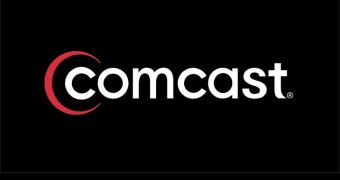Comcast may be claiming up and down that Netflix is the one that should pay to send its traffic through the network, but not everyone agrees with this idea. Congent, the Internet backbone operator, hasn’t been too pleased with Comcast’s attitude towards the entire scandal, particularly the idea that companies should pay for access to an Internet fast lane.
Dave Schaeffer, Cogent CEO, expressed his opinion in front of the House Judiciary Committee, where there was a hearing about Comcast’s plans to buy Time Warner Cable.
“Comcast does not operate a global network. In fact, it should be buying connectivity to the global Internet but has used its market scale and scope to extract an unusual concession,” he said in front of the commission.
He also argued that Comcast wasn’t considered to be a “Tier 1” network. There are about a dozen networks that, put together, create the Internet backbone. They can easily connect with one another, and reach everywhere. The rest of the available networks buy transit in order to access the rest of the Internet.
“It [Comcast] wanted free connectivity, peering to the Internet, even though it didn't operate a global network. It didn't carry its fair load. Because it represented so many customers, backbone operators like Cogent and others agreed to peer with them. That wasn't good enough for Comcast. As Comcast's market power continued to increase and consumers had less choice, they actually started demanding payments for connectivity. A larger Comcast will be able to demand even greater payments,” he says, referring to the size of the resulting company and the number of customers it would have.
Schaeffer also backs Netflix’s claim that the company was forced into signing the contract with Comcast. This happened after, months on end, Netflix customers had troubles with the Internet speeds from Comcast.
Time Warner Cable and Comcast have signed a joint statement saying that the resulting company will continue to cooperate with other companies on interconnection, peering and transit.
“Comcast in particular has over 40 settlement-free routes and 8,000 commercial arrangements, which include dozens of substantial paid peering and transit arrangements with CDNs, ISPs, and major content providers which bring content to Comcast’s ISP network for delivery to Comcast’s customers,” reads the statement.
Furthermore, they claim that their combined networks will account for less than 40 percent of the “fixed” ISP market. Even so, this will not enable the combined company to affect competition in the interconnection market.

 14 DAY TRIAL //
14 DAY TRIAL //